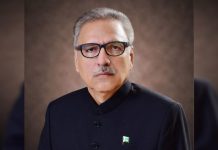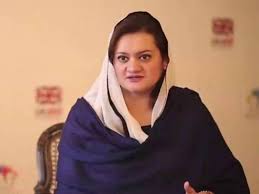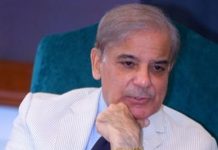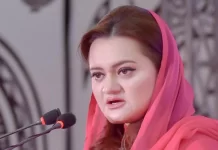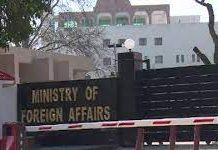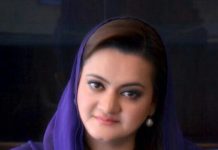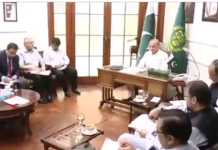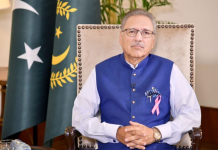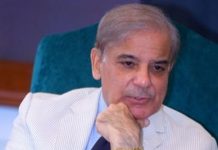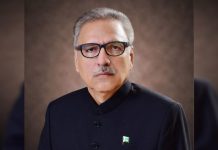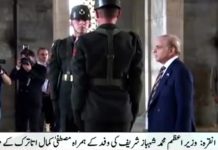ISLAMABAD: Siddiqul Farooq, Chairman Pakistan Evacuee Trust Board, Sunday said that history is the living memory of a society.
“A person is useless without proper knowledge of his or her past.
Similarly, a nation cannot march towards its future without adequate knowledge of its history,” he said while speaking as the chief guest at the inaugural session of the international conference on Asian History, Culture and Environment: Vernacular and Oriental Paradigms held at a local hotel here.
The five-day conference is being organised by the National Institute of Historical and Cultural Research (NIHCR), Centre of Excellence, Quaid-i-Azam University, Islamabad in collaboration with the International Association of Historians of Asia besides others.
Farooq underlined contribution of the NIHCR in preserving the history and culture of the nation saying it needed to be eulogized and promoted.
After focusing on provincial histories, expansion of its research work with reference to Asia is a praiseworthy effort, he said.
He hoped the NIHCR would continue its efforts towards collaborative research and dialogue based concerted efforts in future also, for the sake of knowledge, peace and progress in this global village.
In his keynote address, Dr Khurram Qadir, former Director of the NIHCR, underlined vernacular contributions to the oriental aspects of Asian history, culture and environment.
Hailing the vernacular wealth of Asia, he proposed vernacular methods of learning in all aspects of life-verbal or material.
We need to revisit the vernacular tools for greater learning, he said.
Professor Mahendra Lawoti of Westerm Michigan University, in his keynote address, spoke on challenges of democracy in diverse societies of India, Nepal and Sri Lanka with special reference to Pakistan and Bangladesh.
Syed Wiqar Ali Shah, Dean, Faculty of Social Sciences, hoped that the conference would be successful in attaining the objective of acquiring the knowledge regarding the rich cultural heritage of Muslims and also will discuss with focus on the approaches with reference to history writings.
The NIHCR has a mandate to promote research in history and culture and this conference will encourage the cultural aspects of Pakistan history and the history of Asia, he said.
Guest of honour Prof Dr Razia Sultana, Vice-Chancellor, Shaheed Benazir Bhutto University, Peshawar opined that history is the most significant aspect of human life because our present depends on our past and our future will depend on both our past and present.
Without knowledge and analysis of history, neither any society nor any country can move forward, he said.
Dr Arshad Ali, Executive Director, Higher Education Commission said that the NIHCR got distinction of organizing about 50 such international and national events for the intellectual development and services to the luminaries.
Higher Education Commission is always ready to patronize such scholarly events directed towards nation building and scholarly development, he said.
Dr Ali observed through such events not only senior scholars but also the junior scholars can avail chances to modify the horizon of their intellectual capability and learning for the betterment of the humanity.
He paid homage to the delegates from abroad for sparing their valuable time for the conference and also giving the participants a chance to be acquainted with their scholarly views regarding history, culture and environment.
He assured all possible help of the HEC for the scholars and the institutions in their endeavour directed towards academic progress and development.
He opined that such educational events should also be disseminated through websites and social media sites like Facebook and Twitter besides others.
The incumbent President of International Association of Historians and the Senior Research Fellow of the NIHCR Dr Sajid Mehmood Awan, in his presidential address, said that the world is in perpetual transition, eventually the discipline of history remains in persistent progression.
Till the time world is in transition the discipline of history may certainly not cease to evolve, he observed.
Increasing complexities of the ideas and every day changing patterns of thinking with reference to historic interpretations of the past events invite historians to define, refine and redefine what has happened in the previous times and the way it was reported beforehand, he said.
Dr Sajid emphasised that the present conference on Asian History, Culture and Environment: Vernacular and Oriental Paradigms is an attempt to decipher the changing patterns of historic events and multiple approaches to understand the phenomenon of change and growth.
The QAU Vice-Chancellor Dr Javed Ashraf, in his vote of thanks, remarked that that the participation of learned scholars from many parts of the world and their dialogue on multidimensional themes will enrich further fruitful academic activities not only in Pakistan and Asia but the entire world.
Some new ideas and dimensions of history and culture writing will be presented to the posterity through this auspicious conference where the top scholars of the relevant fields are gathered from numerous parts of the world, he hoped.
Earlier in his welcome address, Syed Umar Hayat, Officer Incharge of the NIHCR, said that IAHA is active since 1960 and its sessions are being conducted regularly in alternate years.
This is for the first time for last 56 years that this conference is going to be held in Pakistan and NIHCR is honoured to host this conference in collaboration with People Empowering & Development Alternatives (PEDA) International; Higher Education Commission of Pakistan and Shaheed Benazir Bhutto Women University, Peshawar.

